If you’re discontented in a relationship or go from one to another or even remain unhappily alone, you may be caught in a worsening cycle of abandonment.
People tend to think of abandonment as something physical, like neglect. Loss of physical closeness due to death, divorce, and illness is also an emotional abandonment. It also happens when our emotional needs aren’t being met in the relationship – including in our relationship with ourselves.
And although the loss of physical closeness can lead to emotional abandonment, the reverse isn’t true. Physical closeness doesn’t mean our emotional needs will be met. Emotional abandonment may happen when the other person is right beside us.
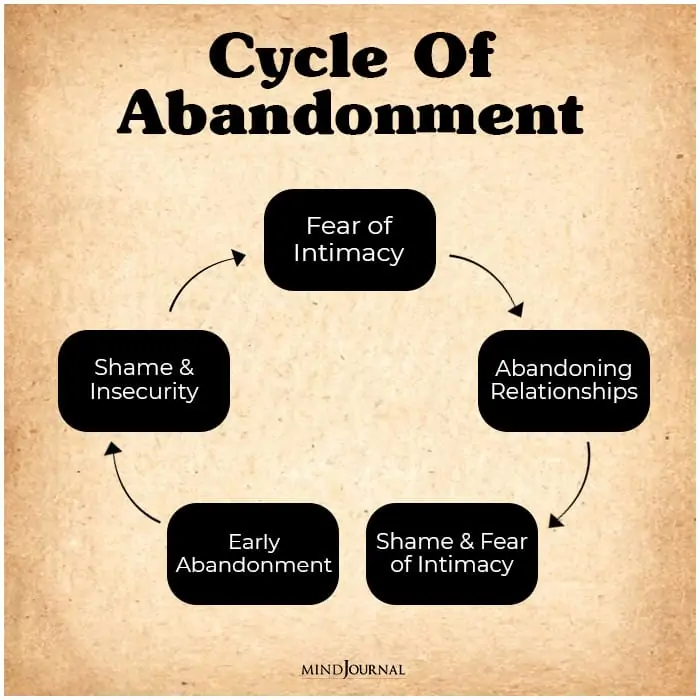
Our Emotional Needs
If we’re not aware of our emotional needs, we won’t understand what’s missing in our relationship with ourselves and with others. We may just feel, blue, lonely, apathetic, irritable, angry, or tired. We have many emotional needs in intimate relationships.
They include the following:
- For affection.
- For love.
- For companionship.
- To be listened to and understood.
- To be nurtured.
- To be appreciated.
- To be valued.
In order to get them met, not only do we need to know what they are, but we must value them and often actually ask for them to be met. Most people think they shouldn’t have to ask, but after the first rush of romance when strong hormones drive behavior, many couples get into routines that lack intimacy. They may even say loving things to each other or “act” romantic, but there’s no intimacy and closeness. As soon as the “act” is over, they return to their disconnected, lonely state.
Of course, when there is high conflict, abuse, addiction, or infidelity, these emotional needs go unmet. When one partner is addicted, the other may feel neglected, because the addiction comes first. Also, without recovery, codependents, which include all addicts, have difficulty sustaining intimacy. (See my blog Your Intimacy Index)
Related: Self-Abandonment: 3 Ways You Are Abandoning Yourself
The Cause
Often people are in emotionally abandoning relationships that replicate the emotional abandonment they experienced in childhood from one or both of their parents. Children need to feel loved and accepted by both parents. It’s not enough to for a parent to say, “I love you.”
Parents need to show by their words and actions that they want a relationship with their child for who he or she is, respecting his or her individuality. That includes empathy and respect for their child’s personality, feelings, and needs – in other words, not merely loving a child as an extension of the parent.
When parents are critical, dismissive, invasive, or preoccupied, they’re unable to empathize with their child’s feelings and needs. The child will feel misunderstood, alone, hurt or angry, rejected, or deflated. Children are vulnerable, and it doesn’t take much for a child to feel hurt, abandoned, and ashamed. A parent who gives a child a lot of attention, but isn’t attuned to his or her child’s needs, which hence go unmet, is emotionally abandoning the child.
Abandonment can also occur when a parent confides in his or her child or expects a child to take on age-inappropriate responsibilities. Abandonment happens when children are unfairly treated or in some way given a message that they or their experience is unimportant or wrong.
The Cycle
As adults, we become afraid of intimacy. We either avoid closeness ourselves or become attached to someone who avoids intimacy, providing the distance that we need to feel safe. (See The Dance of Intimacy) It can work if there’s enough closeness to satisfy our need for connection, but often the distance is painful and may be created by constant fighting, addiction, infidelity, or abuse. Problematic relationships then confirm feelings of unlovability and hopelessness and negative perceptions about the opposite sex.
If the relationship ends, even more, fears of abandonment and intimacy can be created. Some people avoid relationships altogether, are more guarded, or enter another abandoning relationship.
Fearing rejection, we may be on the lookout for negative signs, even misinterpret events, and believe it’s hopeless to talk about our needs and feelings. Instead, we may break-up or engage in distancing behavior, such as criticism or spending more time with others. When the relationship ends, we again feel more alone, rejected, and hopeless.
Abandonment in Childhood → Fear of Intimacy →Abandoning Relationships →Greater Fear of Intimacy →Loneliness and/or more Abandoning Relationships
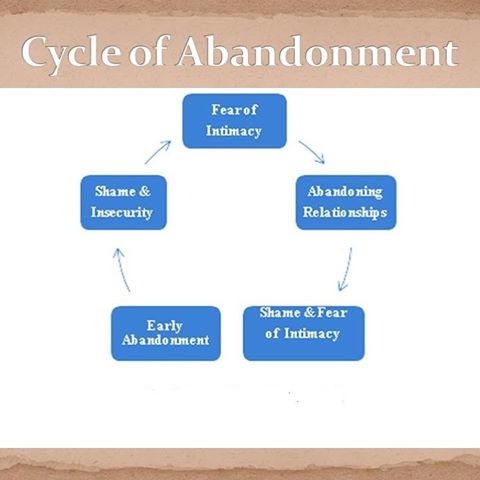
Breaking the Cycle
Reversing this trend is possible. It requires either the good fortune to be in a loving relationship, or more often, therapy is required to heal the wounds of childhood. Much of this is done through the relationship with a trusted, empathic therapist over time.
It also entails the examination of the past and both feeling and understanding the impact of the parenting we received. Goals include not only accepting the past, which doesn’t necessarily mean approving it but more importantly separating out our self-concept from the actions of our parents. (See Conquering Shame and Codependency: 8 Steps to Freeing the True You).
Feeling worthy of love is essential to attracting and maintaining it. In the same way that we might shun a compliment we don’t feel we deserve, we will not be interested and able to sustain a relationship with someone who is generous in loving us.
Related: Are You Losing Yourself In Your Relationship? Stages of Codependency and What To Do
Feeling unworthy originated in our early relationship with our parents. Many people have no negative feelings toward their parents and may, in fact, have a close and loving adult relationship with them. However, it’s not enough that we forgive our parents. Healing includes rehabilitating the beliefs and inner voices of our parents that live in our minds and run our lives. 10 Steps to Self-Esteem and Conquering Shame provide steps to do this.
Finally, breaking the cycle means being a good parent to ourselves – loving ourselves in all ways. See my blogs about self-love and my Youtube self-love exercise. If this last step isn’t included, we will still be looking outside ourselves to someone else to make us happy.
Although a good relationship can improve our sense of well-being, there are always times when partners need space or are needy and unavailable. Being able to care for ourselves allows us to hold the space for our partner and to take care of ourselves. Whether or not in a relationship, that’s the ultimate remedy against spiraling into an abandonment depression.
©Darlene Lancer 2015
Written by Darlene Lancer JD, MFT Originally appeared on WhatIsCodependency.com
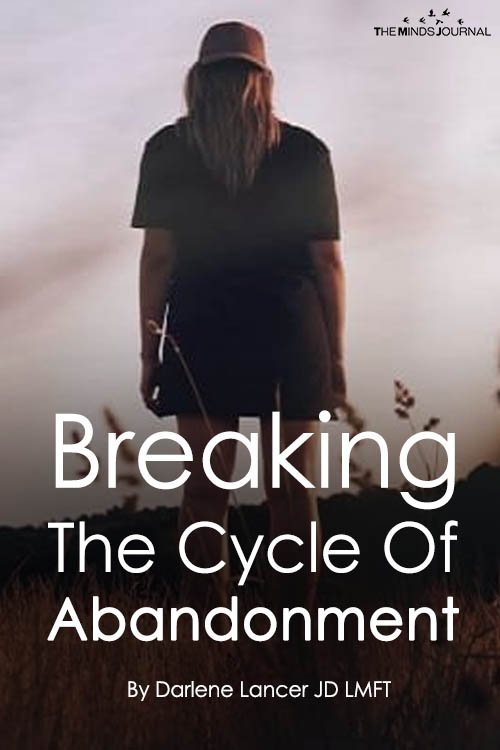
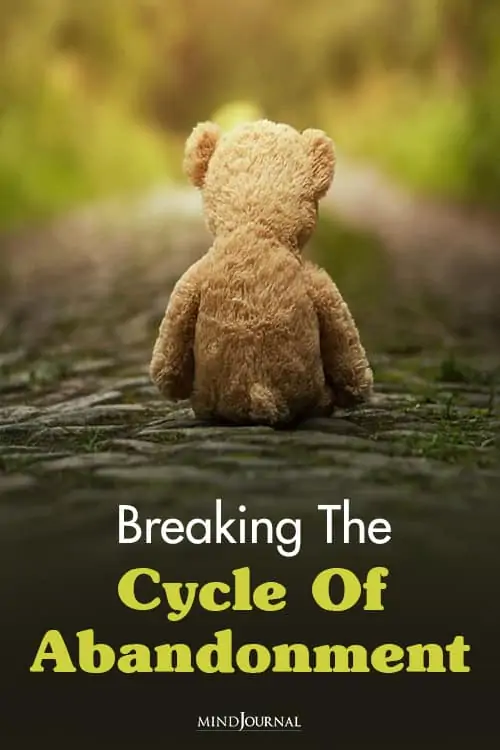
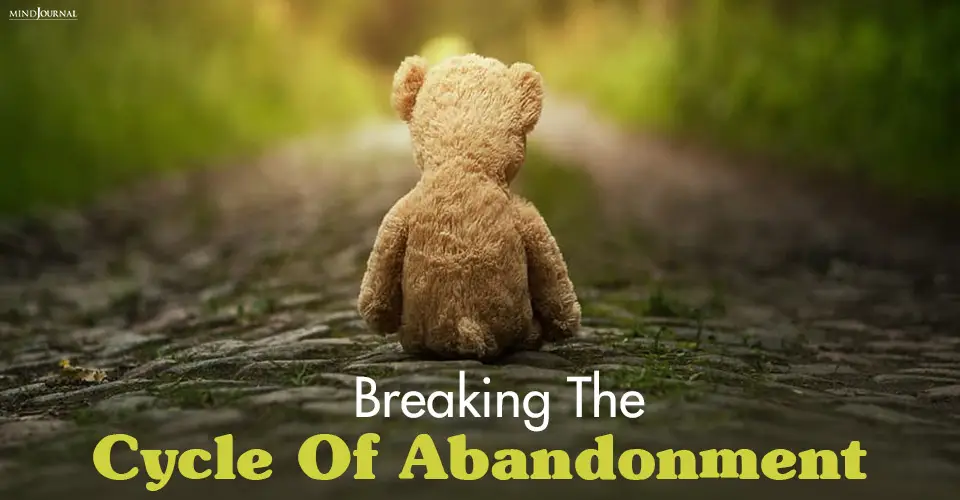


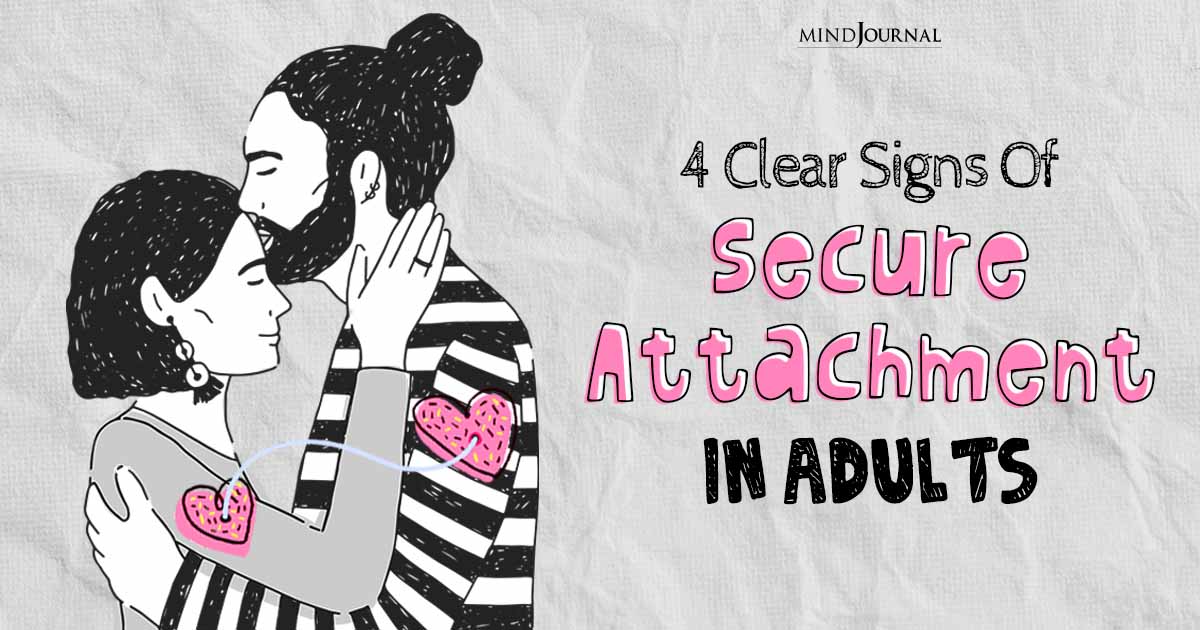

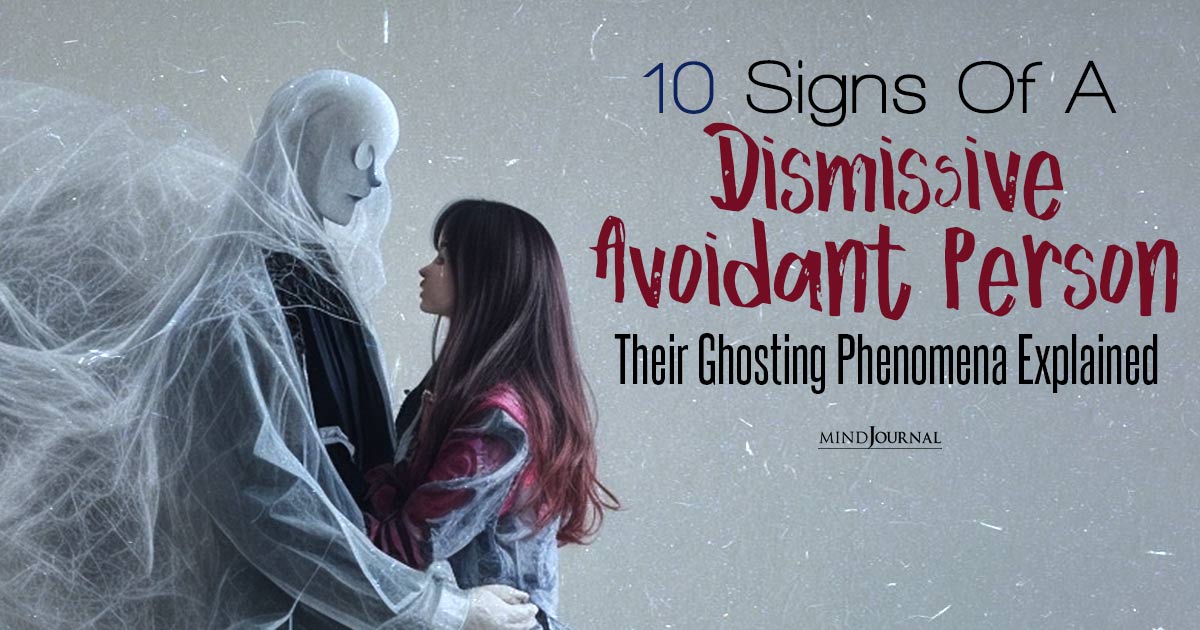

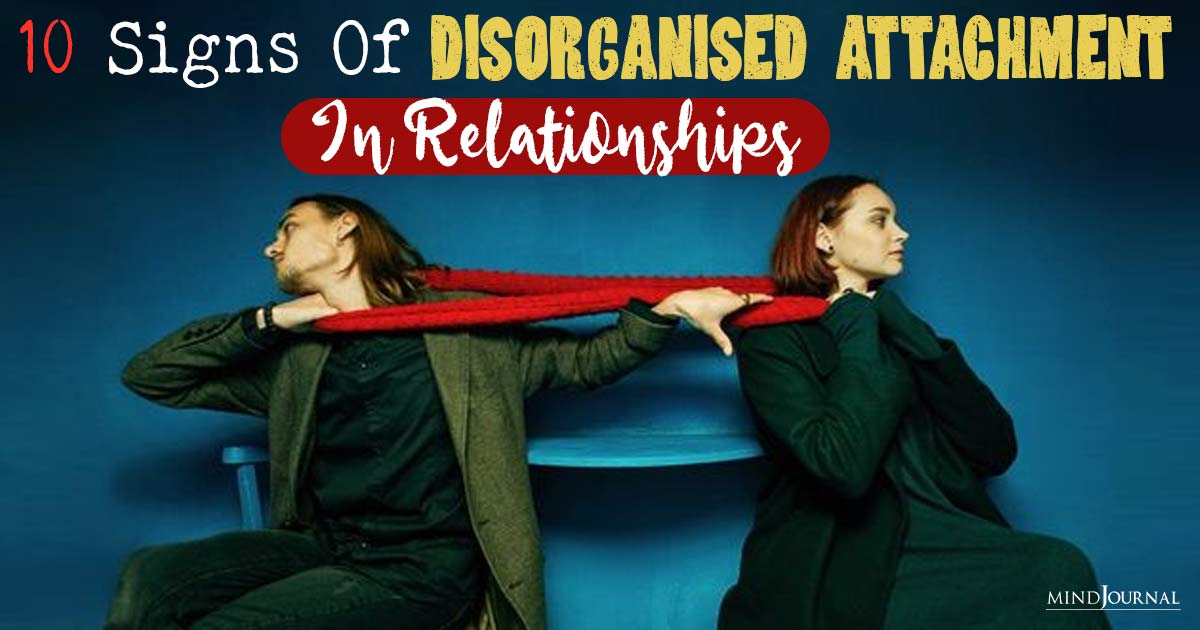
Leave a Reply
You must be logged in to post a comment.